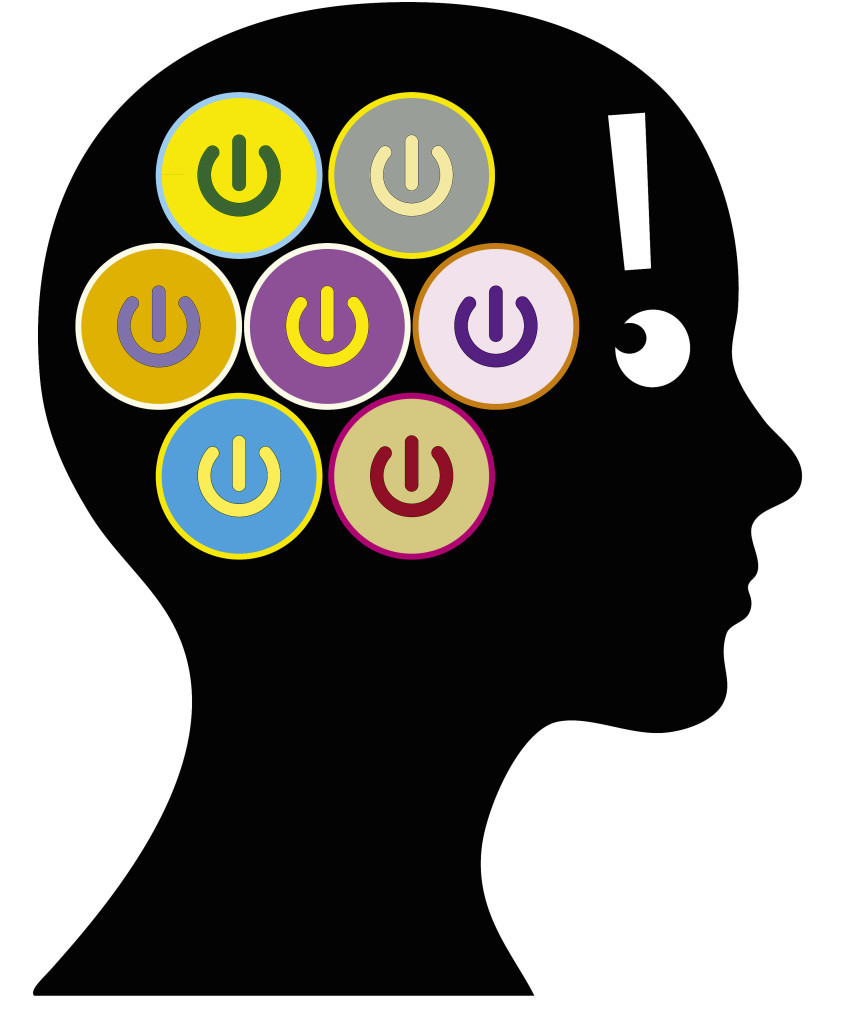The other day my phone was running super slow. I was trying to find the address for a cafe I was going to and it just wasn’t coming up. I was getting frustrated. I was waiting for minutes… which is unacceptable for a new phone. Then I decided to close the other apps on the phone. I came to see that I had 14 different apps open, which is the main reason why my phone was running slow. That made me think. Maybe our smart phones are smart enough to try to give us life lessons at times.
Have you ever gone to another room in your home to do something, but by the time you get there, you forgot why you went? It happens to me. When it does, it’s a great reminder of how I need to slow down and focus on one thing at a time.
Multitasking is just like having numerous apps open on your cell phone. While you think you are doing great, doing all those things at the same time, what’s really happening is that your brain takes longer to process the simple tasks and you end up doing everything inefficiently. That is why you forget why you went into the other room. Likely if you just stood there for a few minutes and breathe, you will remember what you intended to do.
Why should you be aware of this? Well, if you like to live your life efficiently, then you don’t need further explanation. However, if that is no matter to you, then I want you to think about what your energy is like when you are multitasking. Are you happy, in your element? Is the energy positive? Or are you frazzled, foggy brained, frustrated? When you are multitasking, how do you handle someone coming up to you and asking you something? What do you do when your child comes to you and shows you the artwork they made at school? Are you present? Do you want to live your day to day in that energy? Never mind the productivity aspect: how is multitasking serving your mood, your relationships?
There are times where you can make effective use of your time by doing one task that requires brainwork and one that might not require so much. For example, dusting while listening to a course lecture, or catching up on emails while baking dinner (using a timer of course). One requires direct attention, while the other requires either a physical act, or spurts of attention here or there throughout a period of time. How many multitasking pairs or trios can you come up with where only one requires a decent amount of attention and the others don’t? That’s right: not very many. That’s because most of our tasks require our focus. When we shift focus from one to another, what we are doing is requiring our brain to “recalibrate” each time the focus shifts, which takes time. Enough of this and we feel like our day has been longer than it actually was.
So, what about when you are in the middle of something and something else pops up in your mind? Well, there are two ways to look at this; there are reactive and proactive solutions.
Reactive Solutions:
1) Write it down: if it isn’t a time sensitive matter, then simply write it down in your to-do list, or text/email it to yourself, or whatever system works for you. It’s as simple as that.
2) Say it out loud: if it is something that you need to get done right now–and it would only take a few minutes to do– say it out loud to yourself, or to your children or dog, so you can hear yourself say it. For example, you are going downstairs to put the laundry in the dryer while working on emails. Saying out loud “I need to go downstairs to put the laundry in the dryer”, will help you remember it when you go downstairs.
3) Wrap up current task: Finally, you can simply wrap up the first thing you are doing even if you aren’t completely finished with it and go to the next. This might give you an opportunity to clear your mind if you were stuck with the previous task, or at least get those other annoying thoughts out of your head.
Proactive Solutions:
1) Plan out your day: Every morning, write down up to 3 things you want to get accomplished that day (The Big 1-3), then schedule them. As other things arise, you can, during breaks or a slow period, write them down in a general to do list. Day to day tasks like checking email, or planning dinner, should be scheduled/planned around the Big 1-3 of the day, not during.
2) Take regular breaks: To me, this is the most essential thing for everyone to do. Schedule regular times where you don’t have to do anything. Just sit and breathe. If you need a “thing to do”, have a cup of tea or go for a walk, but don’t make this “productive” time. Although this sounds counterintuitive, it actually helps you with the ability to focus when you need it.
3) Change your expectations: Actually, this might be the most essential. You cannot do it all; you are not made to. Figure out what on your plate is imperative and plan to do those things. Then come up with plan Bs for the rest: postpone, eliminate, delegate, or simplify them.
We are all out to try to be the best we can be everyday. With all that is on our plates, we feel that we have to multitask to be that best person. The truth is that multitasking holds us back from being our best person, as it results in being less productive and less present. Maybe next time your brain takes too long to process something, you should consider closing down the other apps in your head that are slowing you down.



